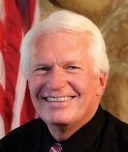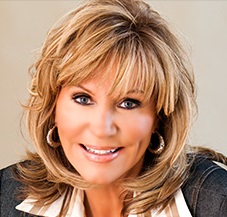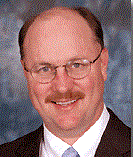By Bob Allen
Southern Baptists’ new leader for public policy concerns is drawing criticism from the Religious Right for public comments calling for a truce in the American culture wars.
Russell Moore, the 42-year-old president of the Southern Baptist Ethics and Religious Liberty Commission, said in a Wall Street Journal interview that it’s time for Christian leaders to tone down their rhetoric and pull back from partisan politics because of younger evangelicals’ “visceral recoil” against the culture wars.
“We are involved in the political process, but we must always be wary of being co-opted by it,” Moore said in a 2,000-word story contrasting his style with that of his predecessor Richard Land. “Christianity thrives when it is clearest about what distinguishes it from the outside culture.”
Conservative groups such as the American Family Association took strong exception to Moore’s views summarized in the headline “Evangelical Leader Preaches Pullback From Politics, Culture Wars.”
 “Since one man’s ‘pullback’ is another’s ‘full-scale retreat,’ social conservatives have a right to raise questions about the new course Moore is setting for the SBC,” commented Bryan Fischer, director of issues analysis for the American Family Association.
“Since one man’s ‘pullback’ is another’s ‘full-scale retreat,’ social conservatives have a right to raise questions about the new course Moore is setting for the SBC,” commented Bryan Fischer, director of issues analysis for the American Family Association.
“Conservative Catholics are already expressing alarm at Pope Francis’ rebuke of the Church for being ‘obsessed’ with issues such as the sanctity of human life and the sanctity of marriage,” said Fischer, a columnist and radio personality. “If the SBC were also to abandon the field of cultural conflict, as Moore seems determined to do, the two largest organized religious bodies in the United States will have ceded the field and the contest to our adversaries in the battle over societal values.”
 Sandy Rios, a Fox News contributor who hosts a daily talk show on American Family Radio, said Christians are compelled to speak the truth — even when it’s difficult and unpopular to do so.
Sandy Rios, a Fox News contributor who hosts a daily talk show on American Family Radio, said Christians are compelled to speak the truth — even when it’s difficult and unpopular to do so.
“Whether Russell Moore wants it to be a war or not, it is a war,” she stated on AFR. “Southern Baptists are going to suffer — there will be jobs lost; I would imagine we will be the targets of punishment by the IRS. This is a war whether he wants it to be or not.”
 Tim Wildmon, president of American Family Association and son of founder Don Wildmon, recalled that following the Supreme Court’s decision in June striking down a major element of the federal Defense of Marriage Act, Moore encouraged Southern Baptists to love their “gay and lesbian neighbors” adding: “They aren’t part of an evil conspiracy.”
Tim Wildmon, president of American Family Association and son of founder Don Wildmon, recalled that following the Supreme Court’s decision in June striking down a major element of the federal Defense of Marriage Act, Moore encouraged Southern Baptists to love their “gay and lesbian neighbors” adding: “They aren’t part of an evil conspiracy.”
“He says to Baptists, ‘Love your gay and lesbian neighbors.’ Nobody has a problem with that,” Wildmon said. “Then he says that gays and lesbians are not part of an ‘evil conspiracy.’ I agree with that on an individual basis. Now, there are people in that movement who want to force their lifestyle on the rest of us. That is an evil conspiracy.”
“This has happened before with other people who are high-profile leaders in the Christian community,” Wildmon said, “and they’re just bailing.”
 Robert Knight, a senior fellow and executive director at the American Civil Rights Union, said he thinks Moore is taking Southern Baptists in the wrong direction.
Robert Knight, a senior fellow and executive director at the American Civil Rights Union, said he thinks Moore is taking Southern Baptists in the wrong direction.
“Now is not the time to call for a truce in the culture war,” Knight said. “When only one side calls a truce, that’s actually a surrender.”
Knight, a Washington Times columnist, noted that the Southern Baptist Convention has drifted to the left before.
“Years ago when the convention was drifting and becoming liberal, they put in staunch conservatives, and [it] became a bulwark in the culture war,” Knight recalled. “I don’t think the people in the Southern Baptist Convention ought to sit by and watch as the convention drifts toward liberalism again. They ought to put up a fight. They ought to call for changes.”
Moore responded with a clarification quibbling with the Journal article’s headline.
“I am not calling, at all, for a ‘pullback’ from politics or engagement,” Moore said in an article published on both the ERLC website and his personal blog. “If anything, I’m calling for more engagement in the worlds of politics, culture, art, labor and so on. It’s just that this is a different sort of engagement. It’s not a matter of pullback, but of priority.”
“I don’t think we need a pullback from politics,” Moore said. “I think we need a reenergizing of politics.”
“This means we must do more than simply live off the fumes of the last generation’s activism,” he continued. “Millennial and post-Millennial Christians are walking away from the political process, and this is what alarms and motivates me. They’ve grown cynical at movements that are willing to adopt allies that are gospel heretics as long as they are politically correct.
“They are disenchanted with movements that seem more content to vaporize opponents with talk-radio sound-bytes rather than to engage in a long-term strategy of providing a theology of gospel-focused action in the public square.”
 Rob Boston of Americans United for Separation of Church and State speculated about the brouhaha in an AU blog. First of all, Boston observed, almost anyone would look more moderate than Land.
Rob Boston of Americans United for Separation of Church and State speculated about the brouhaha in an AU blog. First of all, Boston observed, almost anyone would look more moderate than Land.
Second, Boston said, the use of less-strident language doesn’t mean the SBC’s policy positions are going to change. “Sure, they’ll talk nicer while they push for theocracy,” he said. “Big deal.”
Boston said some of Moore’s branding comes across as a publicity stunt. “The leaders of the SBC know they have a problem with younger people, so they are toning down the rhetoric in the hopes that more congregants won’t jump ship,” he said. “This may fool some people, but again, it’s not a change of policy.”
“I don’t see this as a retreat in the culture wars by the SBC, and it’s certainly not a surrender,” Boston said. “I’d call it a tactical repositioning.”
